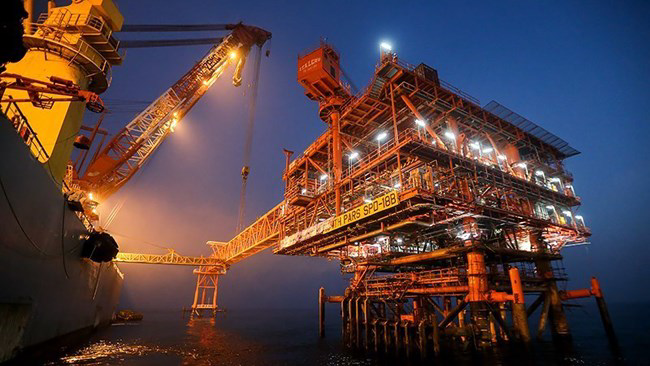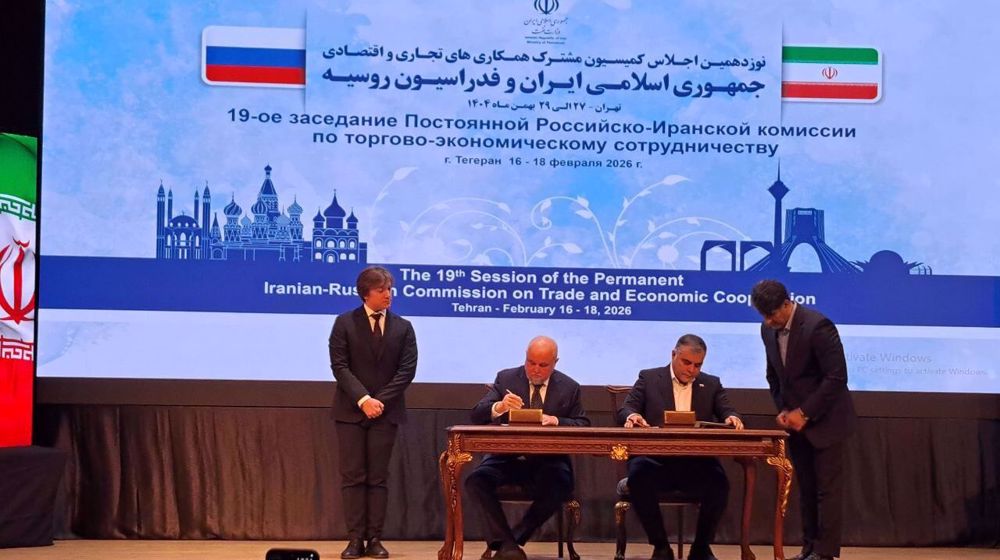US exempts Iraq in further retreat on Iran sanctions
Iraq will continue importing electricity and natural gas from Iran under an exemption from US sanctions, the special representative for Iran at the US State Department Brain Hook has said.
The waiver marks a further retreat by the Trump administration after it exempted eight countries - but not Iraq - from its unilateral trade sanctions on the Islamic Republic.
It came after the United States issued formal waivers for Iran’s Chabahar on the Sea of Oman which is being developed jointly by India to crack open a trade and transport route to landlocked Afghanistan.
Iraq has extensive trade ties with Iran and depends on Iranian natural gas imports for electricity generation. Basra in southern Iraq was hit by violent protests which spread to other cities this summer, partly because of a halt of Iranian electricity exports.
On Tuesday, Iraq’s former prime minister and leader of the al-Wataniya faction in parliament Ayad Allawi warned that new US sanctions on Iran would have deep impact on the Iraqi economy.
Allawi said like the Iraqi government and other political leaders, he was opposed to unilateral US sanctions on the Islamic Republic, Iraq’s al-Maluma news agency reported.
Meanwhile, Iraqi Prime Minister Adel Abdul Mahdi said his country's position with regard to the US sanctions was similar to those by the European Union, Russia, China and Japan.
He said official delegations have been negotiating with both American and Iranian parties for some time, with the message that "Iraq will not be part of the sanctions regime, as it will not be part of aggression against any country."
Abdul Mahdi said his country will consider both its own interests and the interests of others, "and if the United States makes a decision, it must implement it through its own means and not by other countries."
Iran is currently Iraq's top trade partner, with annual turnover standing at about $12 billion, according to Iraqi officials.
Foodstuff, livestock, construction material and plastic products constitute the bulk of Iran’s exports to Iraq where Iranian vehicles and food items are a ubiquitous sight.
The two neighbors are currently working on the supply of Iranian gas to Sadr, Baghdad and al-Mansuriya power plants through a 270-kilometer pipeline and to Basra near the Iranian border via a separate pipeline.
Iraq and Iran have also been exchanging oil through a swap deal under which crude from the Kirkuk field in northern Iraq is shipped by truck to Iran which uses it in its refineries and delivers the same amount of oil to Iraq’s southern ports.
A spokesman for Iraq’s oil ministry was quoted on Sunday as saying that Baghdad would “temporarily” halt Kirkuk oil exports to Iran and use it for domestic consumption.
There was no immediate explanation from the two sides, but one reason could be the cold weather as winter is setting in.
On Saturday, Iraq rejected what it called US interference in its affairs after the American embassy in Baghdad accused Iran of not permitting the disarming of militias in the Arab country.
Iranian officials have said Tehran was pushing forth with a 2025 vision plan to raise exports to Iraq to $20 billion a year despite US pressures on Baghdad to keep Tehran at its arm’s length.
Iran’s business adviser at the country’s embassy in Baghdad was quoted as saying last month that the Islamic Republic was already ahead of the plan, with non-oil exports standing at $4.5 billion.
US will suffer ‘massive losses’ in case of new war: Iraq's Kata’ib Hezbollah
Normalization increases cost of defeating Israel, Yemeni leader warns
Activists announce 'Freedom and Sumud Flotilla' to challenge Gaza blockade
VIDEO | Rome residents demand end to ties with Israeli firms
VIDEO | Pakistan Senate condemns ‘hexagon of alliances’ as Indian PM visits Israel
VIDEO | Founder of French pro-Palestine NGO appears before court
VIDEO | Modi’s Israel visit sparks opposition, domestic backlash
VIDEO | Continuous war on media in occupied West Bank












 This makes it easy to access the Press TV website
This makes it easy to access the Press TV website